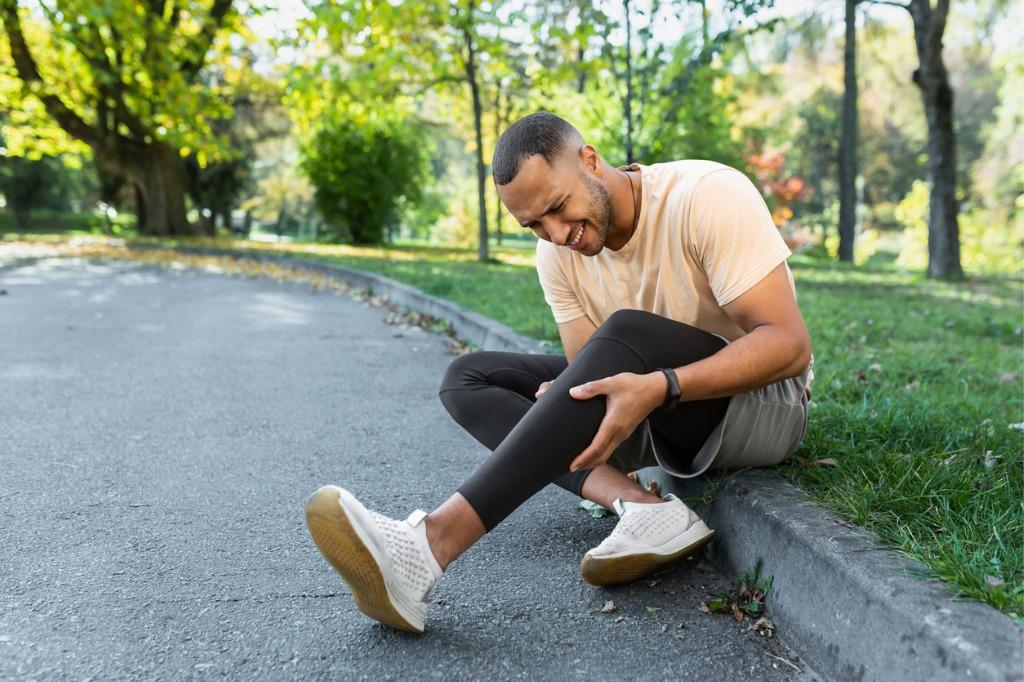
Running injuries can be a painful hurdle on the path to achieving your fitness goals. However, with the right knowledge, guidance, and care, these obstacles can be effectively managed and overcome. Running injuries can sideline athletes of all levels, from amateurs to seasoned marathoners. Sports medicine plays a pivotal role in both the prevention and treatment of these injuries, ensuring runners can return to the track stronger and more resilient.
Performance Sports Medicine Institute plays a pivotal role in this journey. Our dedicated team of experts, armed with state-of-the-art technology and a wealth of experience, provides a comprehensive approach to diagnosing, treating, and preventing running injuries. We’re committed to helping athletes of all levels return to their best possible performance while promoting long-term health and wellness.
Common Running Injuries
Running injuries come in various forms, each with its own set of symptoms, causes, and recovery plans. While some might experience a sharp, searing pain in the bottom of their foot, indicative of plantar fasciitis, others might grapple with the dull, throbbing ache of shin splints. Runner’s knee and hamstring sprains are also common afflictions within the running community. These injuries, although diverse, can all be traced back to similar root causes and preventative measures. Let’s delve deeper into these common running injuries and understand what they entail.
Plantar Fasciitis
Plantar fasciitis is a common running injury that primarily affects the thick band of tissue (plantar fascia) that runs across the bottom of your foot, connecting your heel bone to your toes. It’s characterized by a sharp, shooting pain near the heel, particularly pronounced in the morning or after prolonged periods of rest or inactivity.
This condition can be caused by various factors, including overuse, poor foot mechanics, or wearing incorrect footwear. With the appropriate treatment plan and preventative measures, runners can effectively manage and overcome plantar fasciitis, returning to their desired pace and distance. Treatments for this injury may include rest, physical therapy, orthotics, and shockwave therapy.
Shin Splints
Shin splints, also known as medial tibial stress syndrome, is a common running injury that affects the shinbone (tibia) and its surrounding muscles. This injury is often characterized by a dull, aching pain along the inner edge of the shinbone during or after physical activity. The primary cause of shin splints is overuse or repetitive stress on the lower leg muscles, resulting in inflammation and microscopic tears. To effectively manage and overcome shin splints, it’s crucial to address the root cause of the injury. Treatments may include using proper footwear, gradually increasing training intensity, stretching, doing strength training, and rest.
Runner’s Knee
Runner’s knee, also known as patellofemoral pain syndrome, is a common running injury that affects the kneecap and its surrounding structures. Runners with this condition may experience a dull, aching pain around or behind the kneecap during or after physical activity. This injury can be caused by various factors such as overuse, weak thigh muscles, or incorrect running form. Treatment for runner’s knee may include rest, ice therapy, physical therapy, and strengthening exercises.
Hamstring Strain
Hamstring strains are another common running injury that affects the muscles at the back of the thigh. It is often caused by overexertion or sudden, explosive movements, such as sprinting or jumping. Runners with this injury may experience a sharp, shooting pain in the back of their leg, accompanied by swelling and bruising. Treatment for hamstring strains may include rest, ice therapy, physical therapy, and gradually easing back into training with proper warm-up exercises.
The Sports Medicine Approach To Running Injuries
The sports medicine approach to running injuries is a comprehensive strategy that blends medical expertise with a deep understanding of athletic demands. At the core of this approach is an early diagnosis and treatment plan, which begins with a meticulous assessment to pinpoint the exact nature and extent of the injury. This initial step is crucial as it helps build a personalized treatment regimen. Such plans may include a combination of rest, physical therapy, and in some cases, surgical intervention. The sports medicine approach to running injuries is a tailored, interdisciplinary strategy that focuses on:
Early Diagnosis and Treatment
Assessment: Detailed examination to identify the injury and its severity
Treatment Plans: Customized to include rest, physical therapy, and possibly surgery
Rehabilitation and Prevention
Physical Therapy: Exercises to strengthen and correct imbalances
Education: Guidance on proper form and training to prevent future injuries
Advanced and Holistic Methods
Biomechanical Analysis: Technology-driven analysis for running pattern improvement
Nutrition and Mind-body Practices: Diet and practices like yoga for holistic recovery
Enhancing Performance Post-injury
Bouncing back from a running injury isn’t just about getting back to where you were. It’s a chance to come back even stronger. A key part of this comeback is focusing on strength and conditioning, especially in the core and lower body. By building up these muscles, you’re gaining more than just stability. You’re also reducing the risk of getting hurt again down the line.
Alongside this muscle work, regular stretching and mobility exercises are crucial. They help you stay limber and increase your range of motion, which can keep those all-too-common tight muscles at bay. This is about more than just recovery. It’s about setting yourself up for a future where you’re less likely to face the same injury again, letting you hit the ground running with renewed vigor.
Cross the Finish Line Stronger
At Performance Sports Medicine Institute, we believe every runner deserves a pain-free stride and the joy of crossing the finish line stronger. Our team of highly skilled and experienced doctors is dedicated to helping you overcome running injuries and return to your passion stronger, faster, and more resilient. Don’t let running injuries slow your pace. Book your appointment today with us and take the first step toward enhanced performance.

